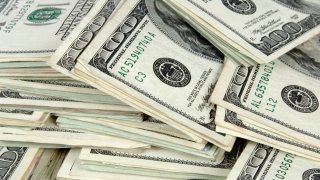
The coronavirus pandemic forced the United States into a health and economic crisis and as a result, it's put a spotlight on racial gaps in America.
San Diegan Bernardo Ferdman is an expert on diversity and inclusion who advises other companies on how to better diversify their workforce. He said, “If we don't do something about diversity and inclusion, we're going to risk getting more and more polarized.”
A new study by Citigroup, found income inequality between white, black and Hispanic families has not greatly improved over the past 40 years.
The study says if those racial gaps had narrowed or closed two decades ago, it could have increased the gross national product by up to $16 trillion. It also reported that having equal access to higher education would have added over $113 billion in added income.
That equal lending for Black business owners would have added over 6 million jobs.
Citigroup researchers argue that removing racial bias is central to economic and social development.
“The way to change is to just change people and I think there's a lot of been a lot of truth to how open-minded we are how much we've learned, how open we are to other people's experiences," Ferdman said. "Do we have empathy?”
California
News from across California
Ferdman said in order to improve the situation, we all need to think about including everyone's voice, create an agreement to work together, actively recruit in different places and make sure everyone has equal chances for pay and promotions.
“If we can really rely on each other and not be suspicious of each other, if we can trust each other, if we can hear each other we're going to do a lot better together,” he added.



